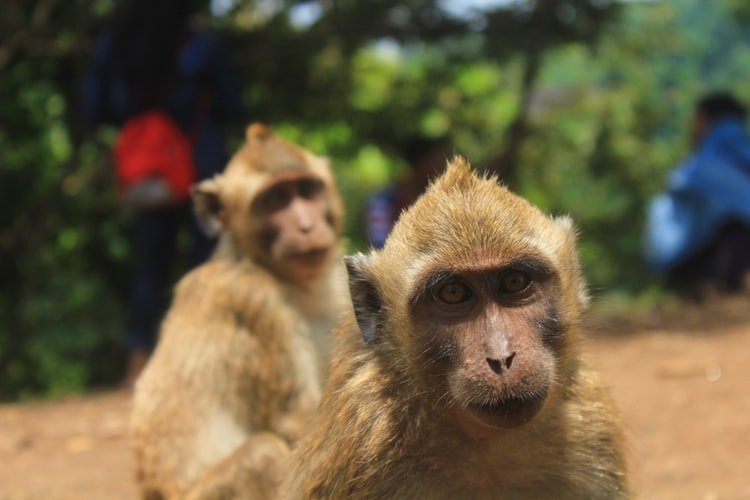Bali, Indonesia, is famous for its world-class tourist attractions. From its beaches to the Buddhist temples. However, there's also one more thing that the place is infamous for-mischievous Macaques.

By now, you might have seen a viral picture of a monkey messing around with tourists.
Seemingly unafraid of human activities, unlike many animals, they are usually caught poking tourists, grabbing them, messing with them, and stealing their belongings. If you have stumbled upon those trends, chances are, those were taken in Bali.
At first, it would be fair to assume that the monkeys are only doing those due to their mischievous nature. However, upon further investigations, evidence showed that the animals are actually doing it calculatingly rather than playfully.
The Macaques that lives at the Uluwatu Temple in Bali seems to be running their own version of an organized crime ring. Studies even showed that the monkeys understood the economics of their actions.
They even developed the ability to distinguish which items can lead to better profit. Yes, the monkey can now identify what things to steal to ensure more food.
Related Article: Monkey See, Monkey Do (If the Price is Right)
The Monkey Cartel
It's not new for animals to steal (see Kleptoparasitism) things from humans. Bears are often found rummaging through baskets in national parks in the US and Canada. Raccoons are also stereotyped as burglars because of the large number of break-ins to steal food and trash the species reportedly participate in.
However, these happenings are more "instinct-driven" and are clearly done for surviving on the bare minimums of life. Bears, raccoons, and other thieving animals are stealing food for consumption. The macaques don't just steal food.
The macaques are reported to have been stealing not just for consumption but for negotiation. They want to trade. Tourists will be shocked when the animals start rummaging through their things and steal items that are not usually considered as food.
What do they do with these items? They use it to ask for ransoms.
What's even more remarkable is the fact that the macaques don't do it alone; they are usually parts of larger groups. The monkeys gather the items in piles and give them to people who give them an adequate amount of food.
The Economics of the Monkey Cartel
As more studies are conducted to observe the monkey organized crime's nature, many are shocked when they found out that the monkeys do not just steal random objects. They have an economic system in place.
A study conducted by researchers from the University of Lethbridge in Canada and Udayana University in Indonesia discovered that the monkeys know precisely what to steal.
The researchers claimed that the macaques showed "unprecedented economic decision-making processes" when choosing what to steal. That means the monkeys prefer stealing "expensive" things knowing that humans will give more food in exchange for the item's return.
It may just be the first example of a culturally maintained token economy in free-ranging animals, they wrote.
The skill to choose what items to steal is shown to have been learned rather than inherited. This was apparent because of how the adult monkeys steals with accuracy while the younger ones are more random when selecting.
The Bali Monkey Cartel is evidence of how other animals can create social contracts similar to humans.
For more animal related news, don't forget to follow Nature World News!
© 2025 NatureWorldNews.com All rights reserved. Do not reproduce without permission.





